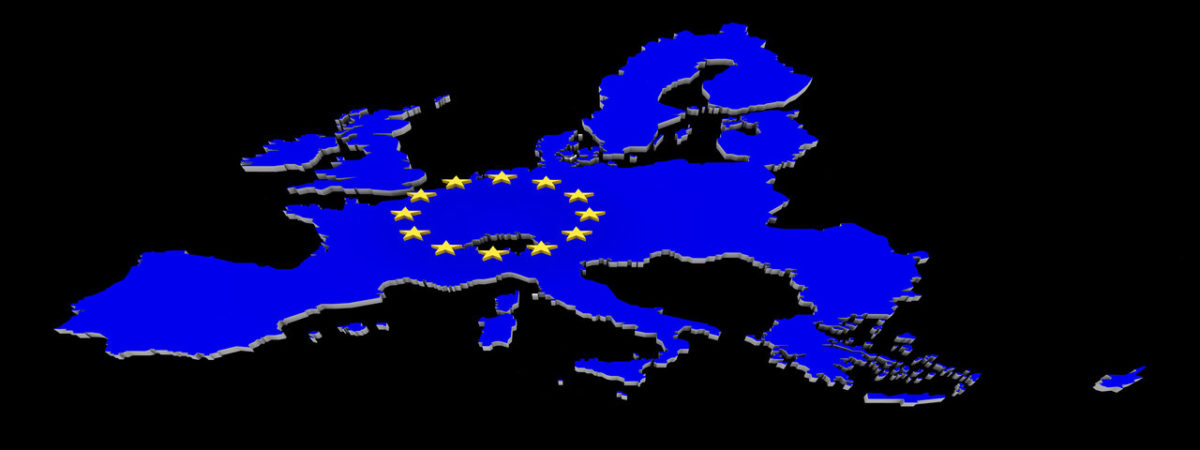Free-marketeers should oppose Britain’s membership of the EU
SUGGESTED



This question is bigger than the political winds or issues which dominate today. Supporters of free markets should look beyond the current migration crisis, or what the precise political environment Brexit would take place in would be, and ask this:
What political and governmental institutions stand the best chance of enhancing economic freedom for the British people in the coming decades?
We all know what we, as supporters of free markets, want. Free trade: internally and externally, and the free movement of capital, goods, services and labour as far as possible. The elimination of state protectionism. We want restrained government, providing genuine public goods and dealing with spillovers at the most efficient level. We want the rule of law respected. We want regulatory systems that are robust through their flexibility. We want competition to allow a discovery process of best practice across governments. Where government has power, we want it to be accountable, and unbeholden to vested interests.
Who can seriously look at the EU now and says it achieves that vision? Worse, who can look at the EU and point to any evidence that that vision will ever be achieved, given the nature of its institutions and the ideology of its leaders? On balance, the only way we are going to puncture a hole in the EU’s current misguided agenda is to stand up now in this referendum and in true Bill Buckley style shout ‘STOP!’
For many other countries this calculation might be different. I don’t deny the achievement of free movement of goods, services, capital and labour and how this can provide a platform for prosperity. State aid rules do help curb the stronger narrow nationalist interests which are more prevalent in other EU political systems. The harmonisation of product regulations does help eliminate non-tariff protection in the same vain, though often at the cost of a higher level of regulation. But the simple truth is that the EU is not fundamentally a free market institution, and those who say otherwise are deluding themselves.
The EU is a one-way ratchet for more centralised power. It has as its driving ideology, not a vision which embraces diversity and competition between member states and real subsidiarity, but rather a top-down centralising agenda towards conformity. Using the excuse of reducing non-tariff barriers, we’ve seen a push for harmonised product regulations across the whole ‘internal market’ often increasing costs substantially to supposedly stop a ‘race to the bottom’. In fact, the EU has gone even further, trying to harmonise process regulations, such as labour and environmental laws – an act completely unnecessary and unjustifiable for preserving freedom. And these scarcely ever get undone. The EU is like a ratchet because, as other IEA authors have shown, the institutions of the EU have no incentive to give up power.
The result for Britain is our more liberal instincts are being harmonised away with countries who have a ‘social Europe’ vision. Damaging regulations, in areas such as financial services, are imposed upon us against our interests when domestic regulation would be more appropriate. The mooted harmonisation on other things, as outlined in the Five Presidents Report, such as on bankruptcy and corporate law, taxes and other aspects of labour market regulation threaten to make this problem worse. Whilst this could be liberalising for other EU states, it’s difficult to think that harmonising these things with countries such as Greece, Spain and Portugal could be anything other than a disaster for Britain.
That’s not to say there is not a case for international cooperation in some areas. But it’s actually quite difficult to think that the EU is an appropriate level of governance for virtually anything – whether the provision of public goods or in dealing with spillover effects. Externalities which need dealing with by government tend to be either global (such as climate change) or highly local (such as most other environmental issues). Do either of these areas fall alongside EU borders? Paradoxically, when it comes to genuine areas requiring international cooperation, the EU is either a secondary player reduces that our influence where it matters, or else it usurps national governments in other areas where we could do things better.
Powerful economies such as Britain then get the worst of both worlds in the EU: we’re represented as 1/28th of an EU representative on some global bodies such as the WTO where real important decisions are made which we could shape; but have also lost power over whole areas of policy which could be better tailored to domestic circumstances and needs.
The cost of this sclerotic structure, and in particular its external protectionism, gets higher by the day. It’s farcical that the UK has no free trade agreement with countries such as the US and Japan. Far from giving us extra clout, the EU is falling behind nimbler countries with a narrower range of interests in signing FTAs (see Switzerland, Iceland) with fast growing areas of the world. This is not least evidenced by Iceland, with the population the size of Croydon, having a free trade deal with China. The cost of a customs union and the evident coordination problem we face inside the EU on trade – the differing interests of producers which capture the process – means there has never been a better time to pursue our own trade agenda.
One reason for this sclerotic structure is that the huge centralisation of power means Brussels, whilst being successful in restraining overt nationalist interests, is an easy target for other sectional and incumbent interests from industries, such as farming, lobby groups and the bureaucrats in the commission themselves right through to the Eurozone countries as a block. That’s why we have the CAP and costly anti-dumping and other protections. Going forward, the Eurozone sectional interest within the institutions of the EU is the most worrying for Britain. As part of his renegotiation, Cameron gave up the power to use a veto against further integration to help the eurozone. Britain risks being outvoted and increasingly subservient to a powerful Eurozone block with its own agenda.
Now, I might take a more sanguine attitudes to all of these major structural problems if the EU was reformable. But after the farce of the renegotiation, does anyone even believe that? Few powers are ever returned to nation states. Cameron’s renegotiation itself showed just how little can be achieved when you require buy in from 28 countries with different wants and needs. Not one power was returned to the UK.
The truth is that the EU is over-centralised and harmonised. It’s an inappropriate level of government for most problems where cooperation is needed. It’s incapable of reform with costly external protections. And it has ridden rough-shod over the rule of law in dealing with the Eurozone crisis.
That’s not to claim Brexit will deliver us to some form of free market nirvana. In fact, for reasons we’ll probably explore in the Q&A, I do not think leaving will change much immediately. But in the longer term, I believe that both the observed flexibility of our political institutions and our political culture is far more likely to enhance the cause of economic freedom then remaining.
Brexit would structurally change the game: it would prevent the forthcoming pressures to harmonise many of our laws and regulations further in a damaging way to our interests; prevent us becoming second-class members of an EU where the Eurozone dominates; return our seats on global top regulatory tables; and return control for our own external trade policy. Who knows, it might even change the direction of the EU.
Yet there won’t be change overnight. Too many people treat this referendum as an event, but really it’s the start of a process. A process which, at its end, will provide the opportunity for a more free market Britain than the EU ever makes possible. We might not wholly embrace that opportunity. But inside the EU that path simply will not exist. If you want to widen the political possibilities to include a genuine free market agenda, your only option is to vote leave.
Ryan Bourne is the IEA’s Head of Public Policy, and Director of the Paragon Initiative.




